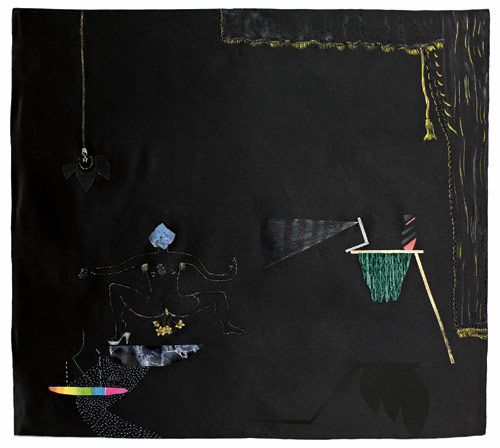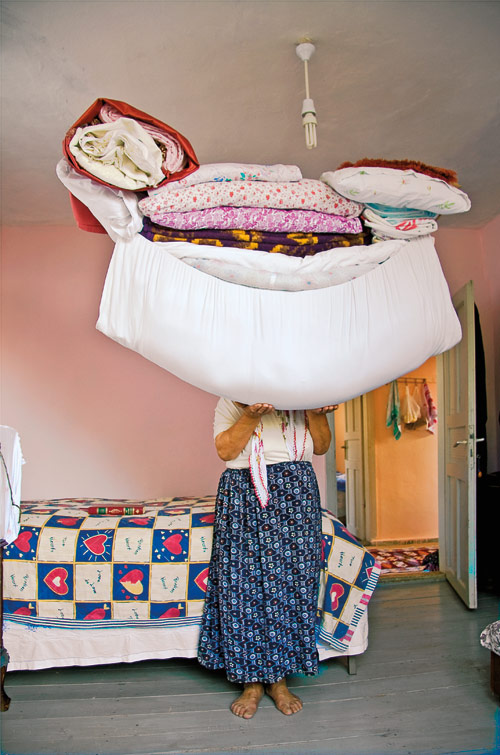Black Series / TrabZONE / and other works
2011-2012 / 2010 / 2014
Nilbar Güres

Appliances and technologies, habits and beliefs, and the ways in which theses elements create and empower forms of behaviour and action provide the common threads running through the work of Nilbar Güres included in the 31st Bienal. The series of photographs TrabZONE, of which only a part is shown, depicts slightly comic situations that the artist recreates, partly from her childhood memories and partly from her own imagination. The photographs bring to the surface repressive codes still in force in the city of Trabzon, in Turkish Kurdistan (East Anatolia), where some of the artist’s extended family live. At the same time, by exposing these codes, Güre? enables an exercise in questioning expectations, and this is true both for the subjects depicted and for those looking on – for whom the content of the staged situations is, for the most part, more opaque (outlandish or improbable) than legible.

This work is accompanied by a new set of sculptures, some of them made from the collages in her Black Series. Here, bringing in to play the ‘feminine delicateness’ of embroidery and covering cloth with a kind of dreamlike iconography, Güres proposes a game of concealment and revelation where the infinite variety and vitality of eroticism is shown as the most useful critical tool to fight the prejudices and crimes perpetrated against sexual freedom. Similarly to TrabZONE and Open Phone Booth [see pp. 132-133], the result of this gaze on mechanisms of control and suppression is cathartic, resulting in images and configurations that show surprising and, therefore, also liberating ways of seeing, thinking and doing. – SGN